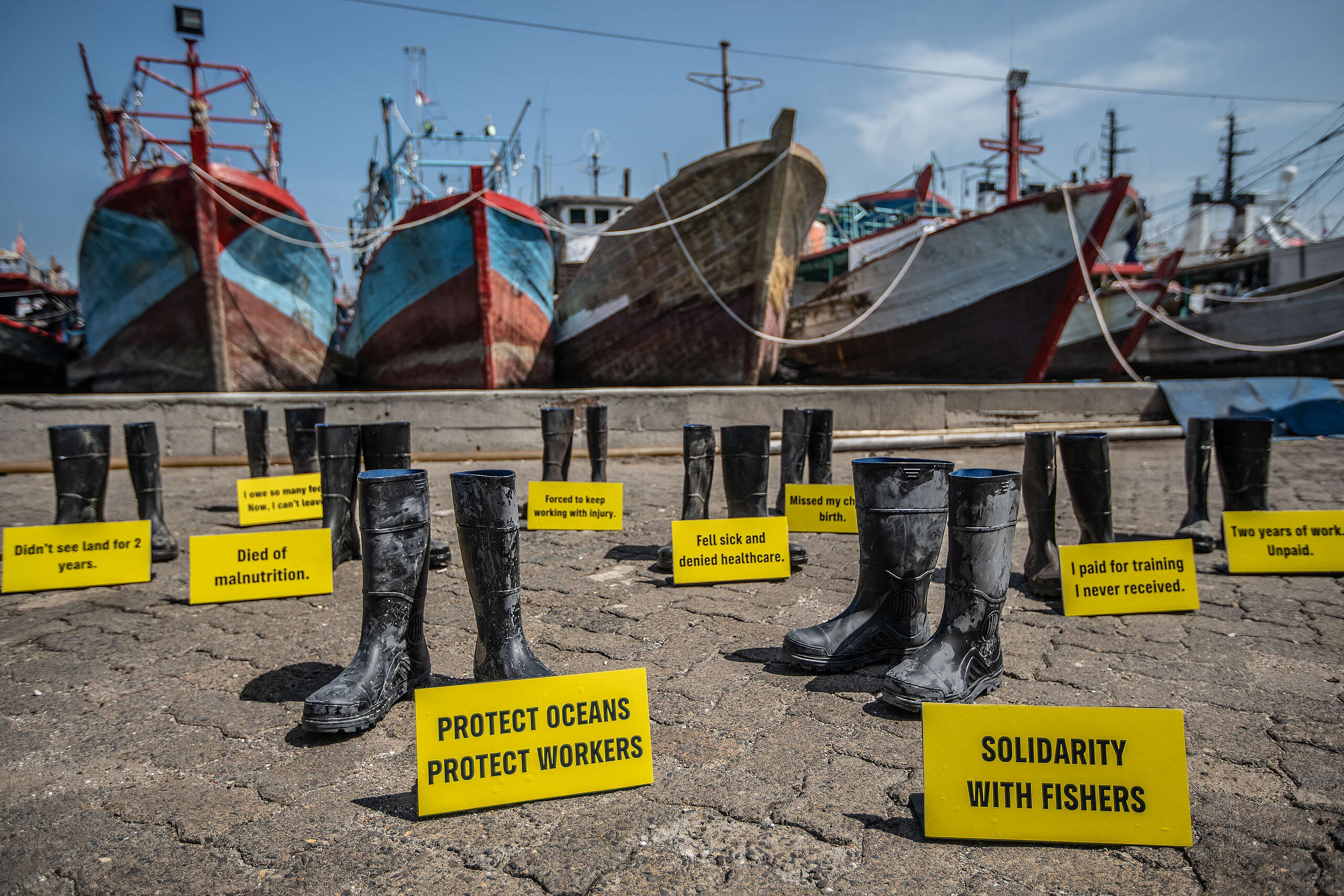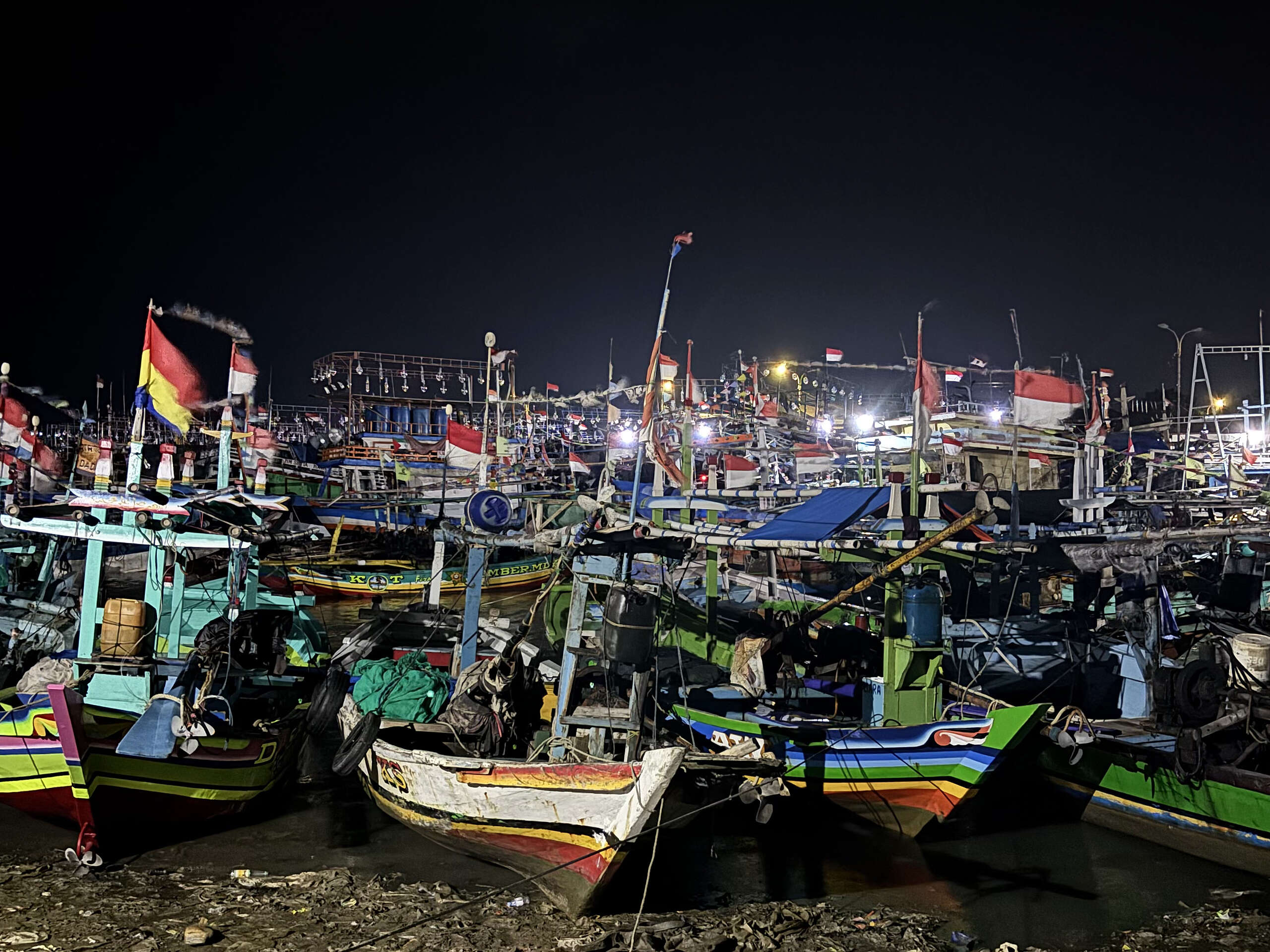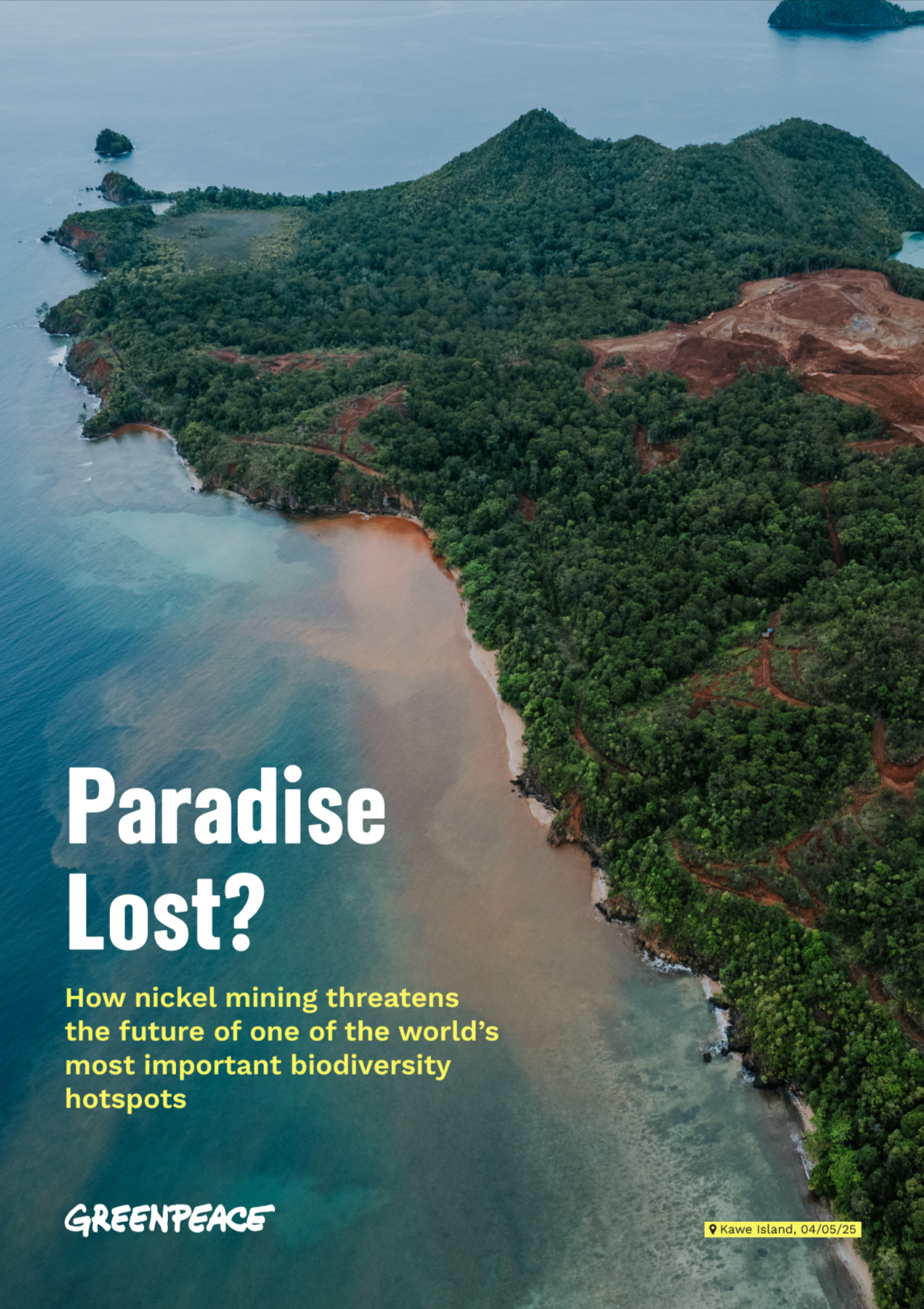Defending Our Oceans
We are dedicated to safeguarding our oceans, which are vital to the region’s biodiversity and coastal communities. Our efforts focus on combating plastic pollution, overfishing, industrial developments and the impacts of climate change.
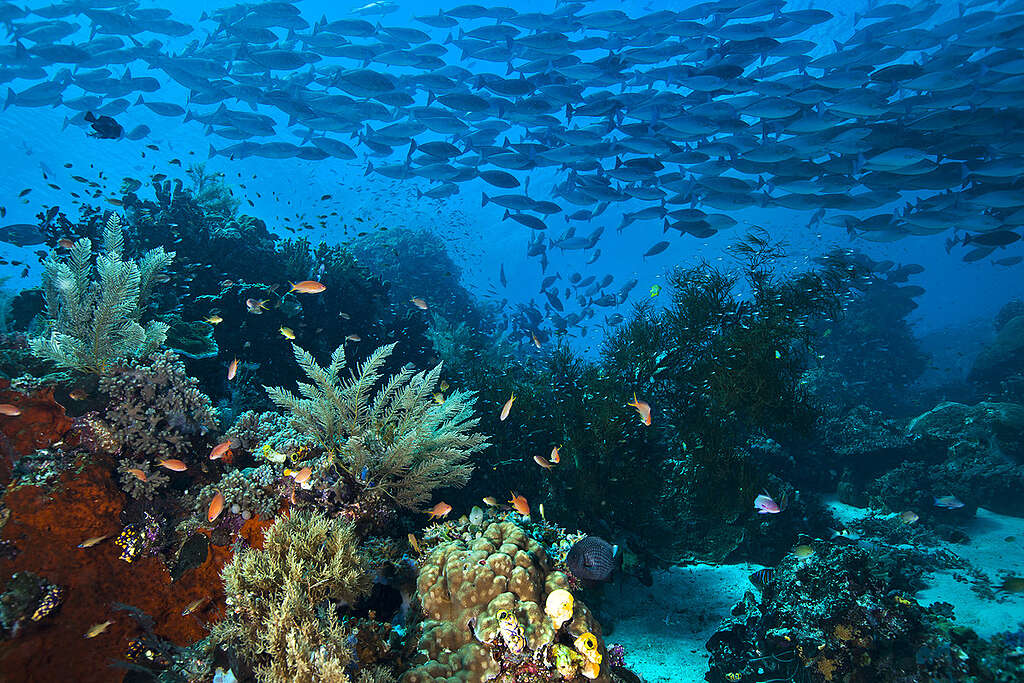

12
million metric tonnes of plastic end up in the ocean each year—a truckload of waste every minute

63
billion pounds of marine life die through unsustainable industrial fishing

30%
the minimum to enable ocean recovery and thriving, we need to protect of the world’s oceans by 2030, scientists say.
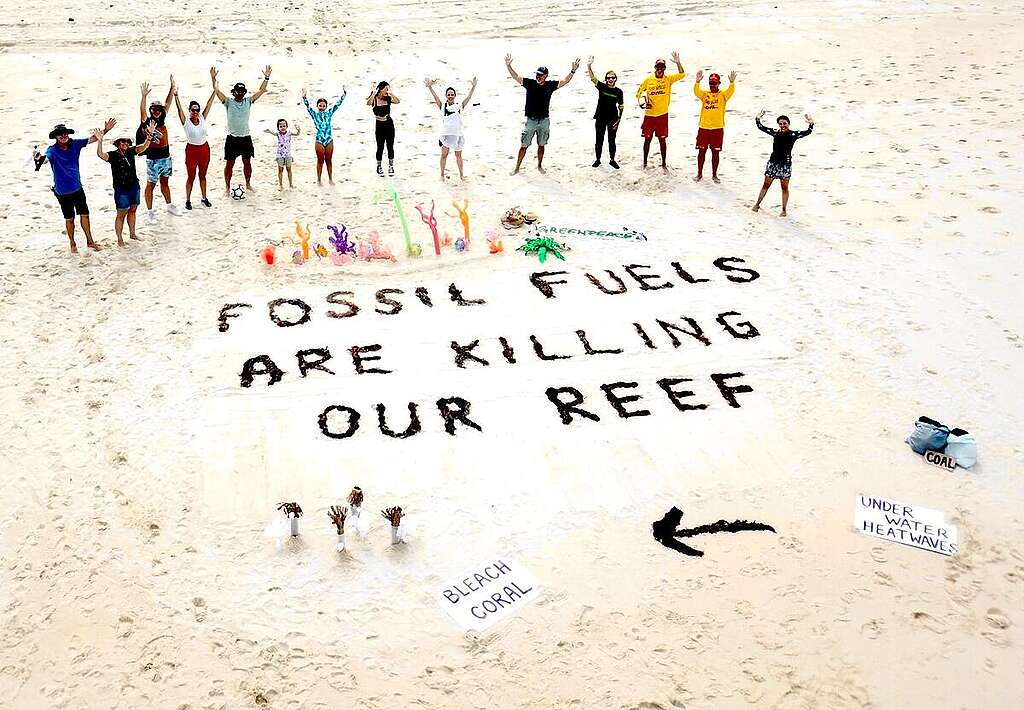
Why Healthy Oceans Matter to Southeast Asia
Oceans are the lifeblood of Southeast Asia, providing food, jobs, and protection against natural disasters. Pollution and overfishing threaten fish stocks, directly affecting livelihoods and food security. Plastics and toxins in the ocean endanger marine life and, ultimately, human health through the food chain. Coastal ecosystems also act as natural buffers against storms and erosion.
Ocean justice issues, including labor exploitation and slavery at sea, affect vulnerable communities. By preserving our oceans, we protect our health, ensure our families have access to safe food, and maintain the natural beauty and resilience of our environment, crucial for our quality of life.
Who is Behind Ocean Destruction
The primary culprits behind the ocean crisis are large-scale industries and negligent governments. Big corporations, particularly in the plastic and fishing industries, prioritize profit over environmental health, leading to rampant plastic pollution and overfishing.
These industries often exploit workers, leading to human rights abuses such as slavery at sea. Governments frequently fail to enforce regulations or support sustainable practices, allowing these destructive activities to continue unchecked.
These entities contribute significantly to ocean degradation and human suffering, jeopardizing marine biodiversity and the livelihoods of millions who depend on healthy oceans. By holding these actors accountable, we can drive the change needed to protect our precious marine environments.
Thailand Oceans work
Greenpeace Thailand is leading the fight for ocean justice, focusing on protecting coastal communities from harmful industrial development. Recently, the Rainbow Warrior ship visited Thailand to spotlight these issues. The ship tour included public events aimed at raising awareness about the threats facing Thailand’s oceans, such as unsustainable fishing and industrial pollution.
Coastal communities, such as those in Chana and Ranong, are actively defending their rights against destructive projects. Greenpeace Thailand supports these communities by advocating for sustainable marine resource management and the establishment of community-led marine protected areas
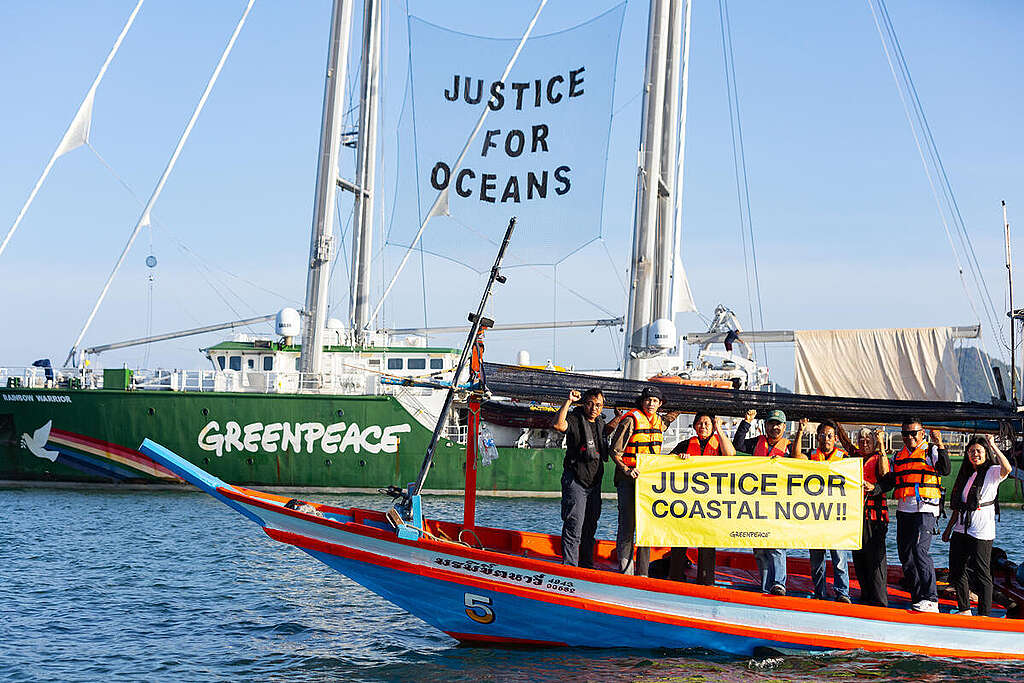
Greenpeace Indonesia focuses on protecting marine biodiversity, promoting sustainable fishing practices, and addressing labor rights abuses in the fishing industry. The office runs campaigns against illegal, unreported, and unregulated (IUU) fishing, which depletes fish stocks and harms local communities. We campaign for the creation and enforcement of marine protected areas and work with local fishermen to adopt sustainable practices.
Greenpeace Indonesia also tackles the issue of slavery at sea by exposing human rights abuses and pushing for corporate responsibility and governmental regulation on labor standards. Through these initiatives, Greenpeace Indonesia aims to restore and preserve the health of Indonesia’s marine ecosystems, ensure sustainable livelihoods and food security for its coastal communities, and protect the rights of vulnerable workers.
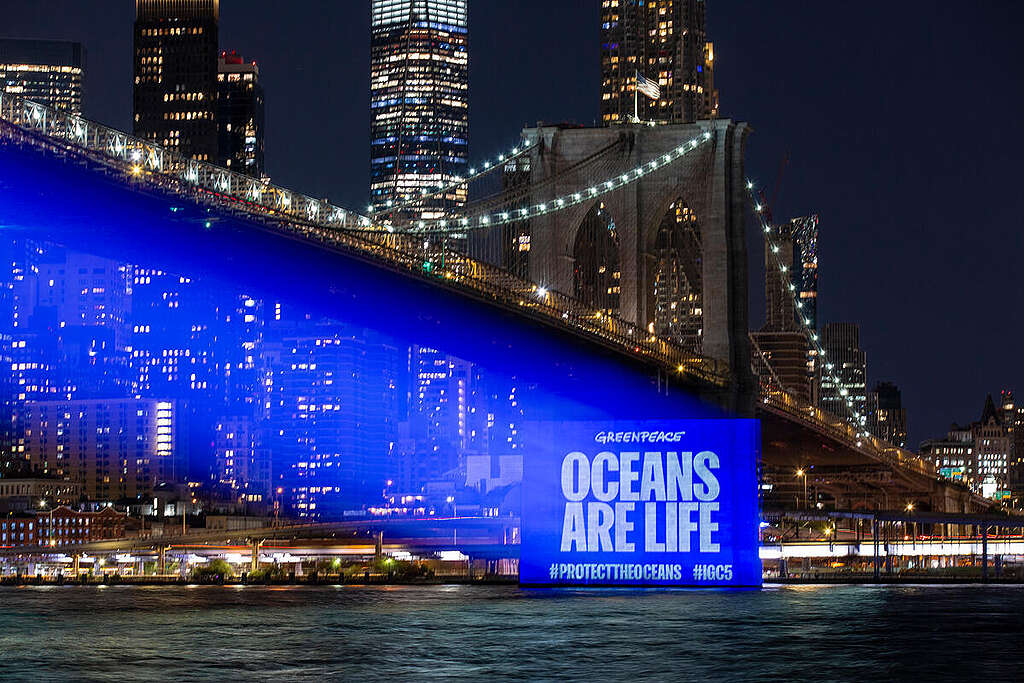
New York’s Brooklyn Bridge, the projections urge negotiators to act and finalise the strongest Treaty possible
Latest on the Global Oceans Treaty
The Global Oceans Treaty, finalized in 2023, aims to protect marine biodiversity in international waters, which make up nearly two-thirds of the world’s oceans. The treaty establishes a framework for creating marine protected areas and regulating activities such as fishing and mining. However, its success depends on ratification by individual governments. Greenpeace Southeast Asia is actively campaigning for governments in the region to ratify the treaty, emphasizing its importance for preserving marine ecosystems, ensuring sustainable livelihoods, and protecting against the exploitation of marine resources. By urging local governments to support the treaty, we can safeguard the health and sustainability of our oceans for future generations.
How you can help
-

Solidarity with Fishers
It is never easy for individuals to go up against large, well-resourced, and influential corporations like Bumble Bee, but a group of Indonesian fishermen are. This letter will be delivered to their legal team with a request to share it with them as a symbol of support and solidarity. We, the undersigned individuals and organizations,…
-

Do you know where your seafood comes from?
Hey Jerry Chou – it’s time to do your part to protect fisheries workers and our oceans.
-
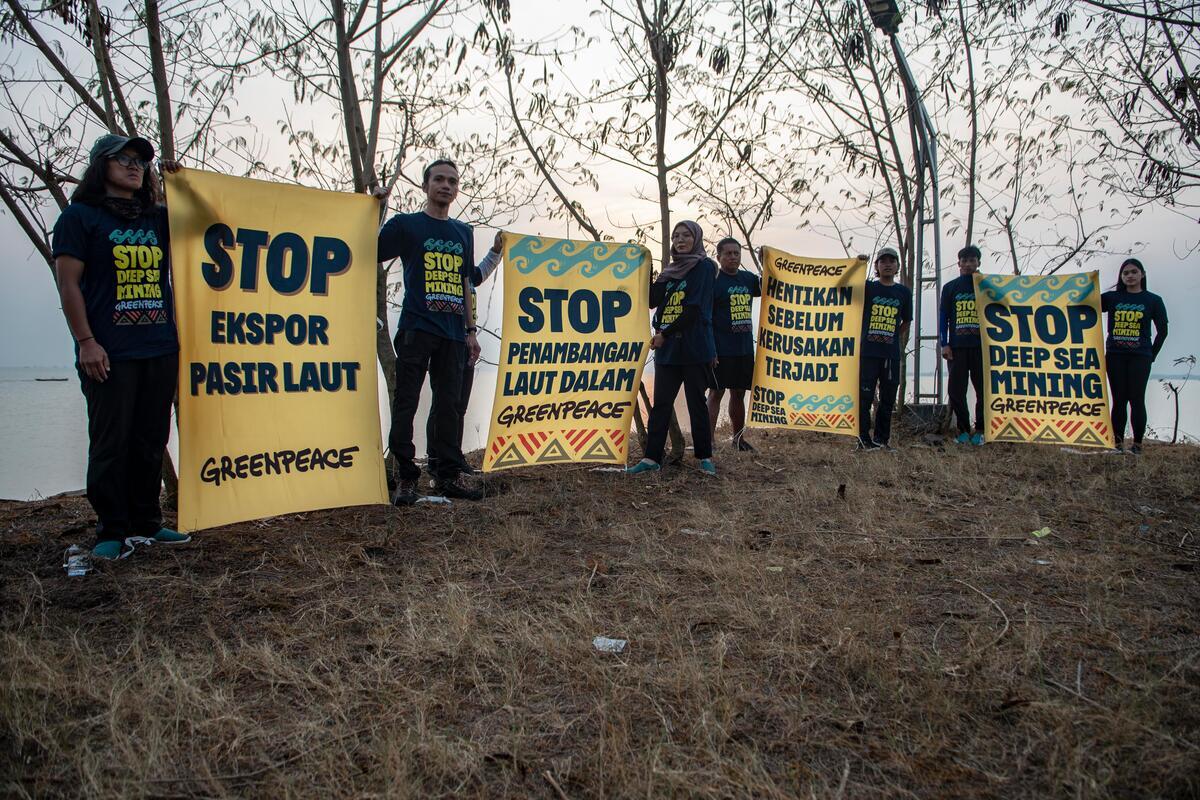
Stop Deep Sea Mining
We need a global moratorium to stop the launch of this destructive new extractive industry. Join the Campaign now.
-

Protect the Oceans
The threats facing our oceans are getting more urgent, find out how you can make a difference
-
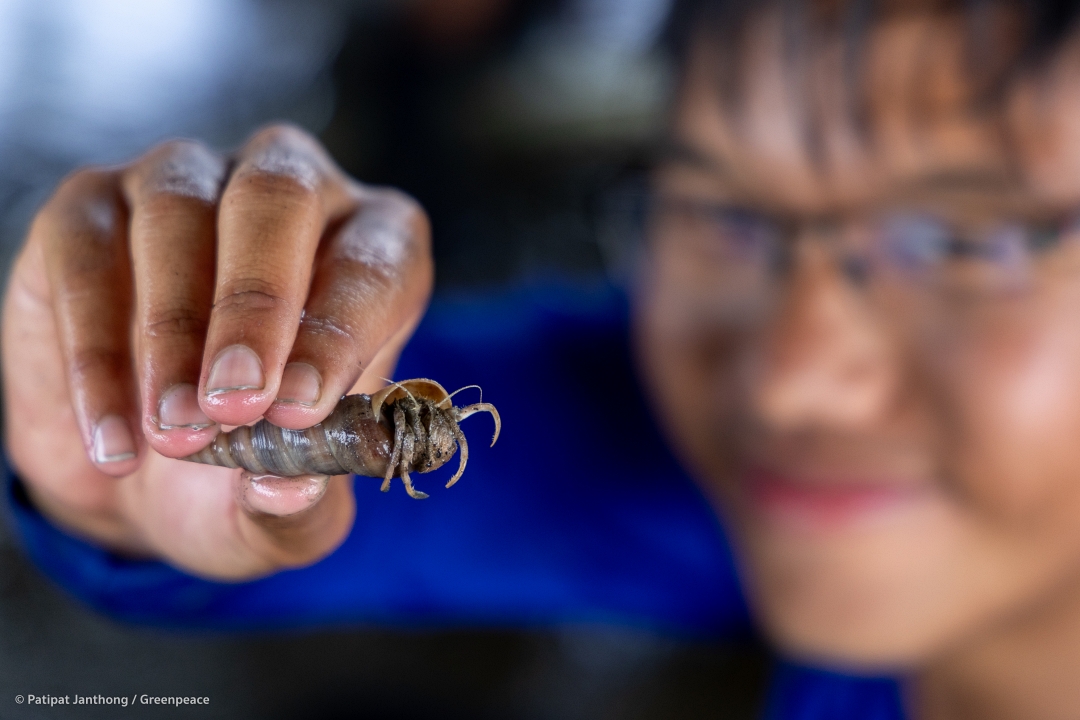
Thailand’s Coastal communities and Indigenous Peoples are fighting for their right to development.
Ranong is home to the country’s largest mangrove forest which will be threatened by a motorway and a dual-track railway titled “Land Bridge”
-

Joint Statement: Transforming the Fisheries Industry and Cross-Sectors through a Human Rights-Based Approach in the Asia Pacific Region
Today, Bangkok once again becomes the place where stakeholders discussed and reaffirmed their commitment to human rights. The 2025 UN Responsible Business and Human Rights Forum (7th UNRBHRF) convenes at a pivotal moment for Asia and the Pacific.
-
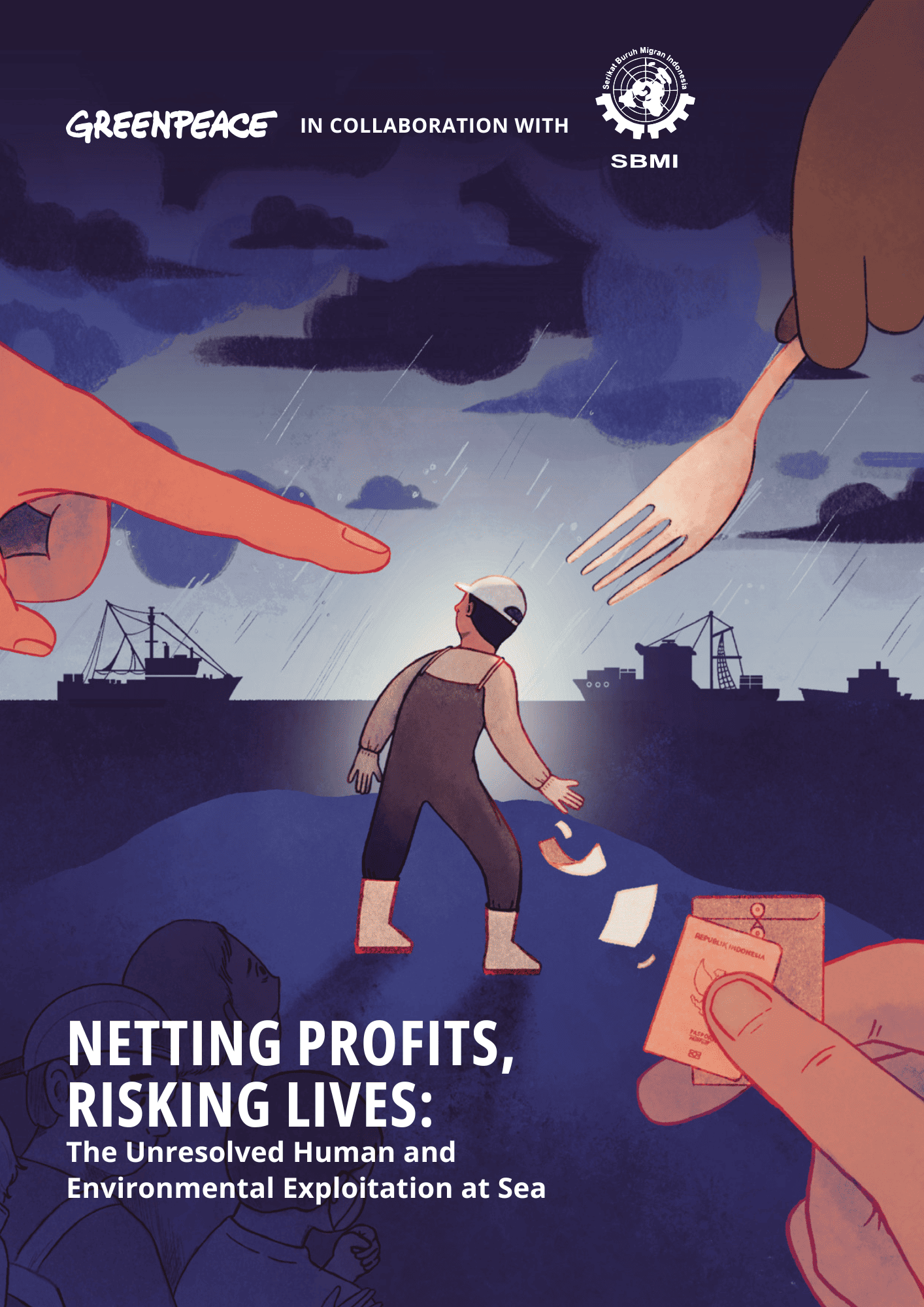
Netting Profits, Risking Lives: The Unresolved Human and Environmental Exploitation at Sea
Forced labor and illegal, unreported and unregulated (IUU) fishing indications continue to be pervasive in Taiwanese distant water fishing. Recruitment agencies reportedly benefit financially by exploiting migrant fishers. This investigation…
-

Roadmap For Recommendations For the Ratification of Work in Fishing Convention, 2007
In June 2007, the International Labour Organization (ILO) created the Work in Fishing Convention (No. 188). The ILO C-188 was aimed at ensuring decent working conditions for fishers aboard fishing…
Keep me posted!
Sign up as a Greenpeace supporter to get the latest updates and action alerts in your country.

